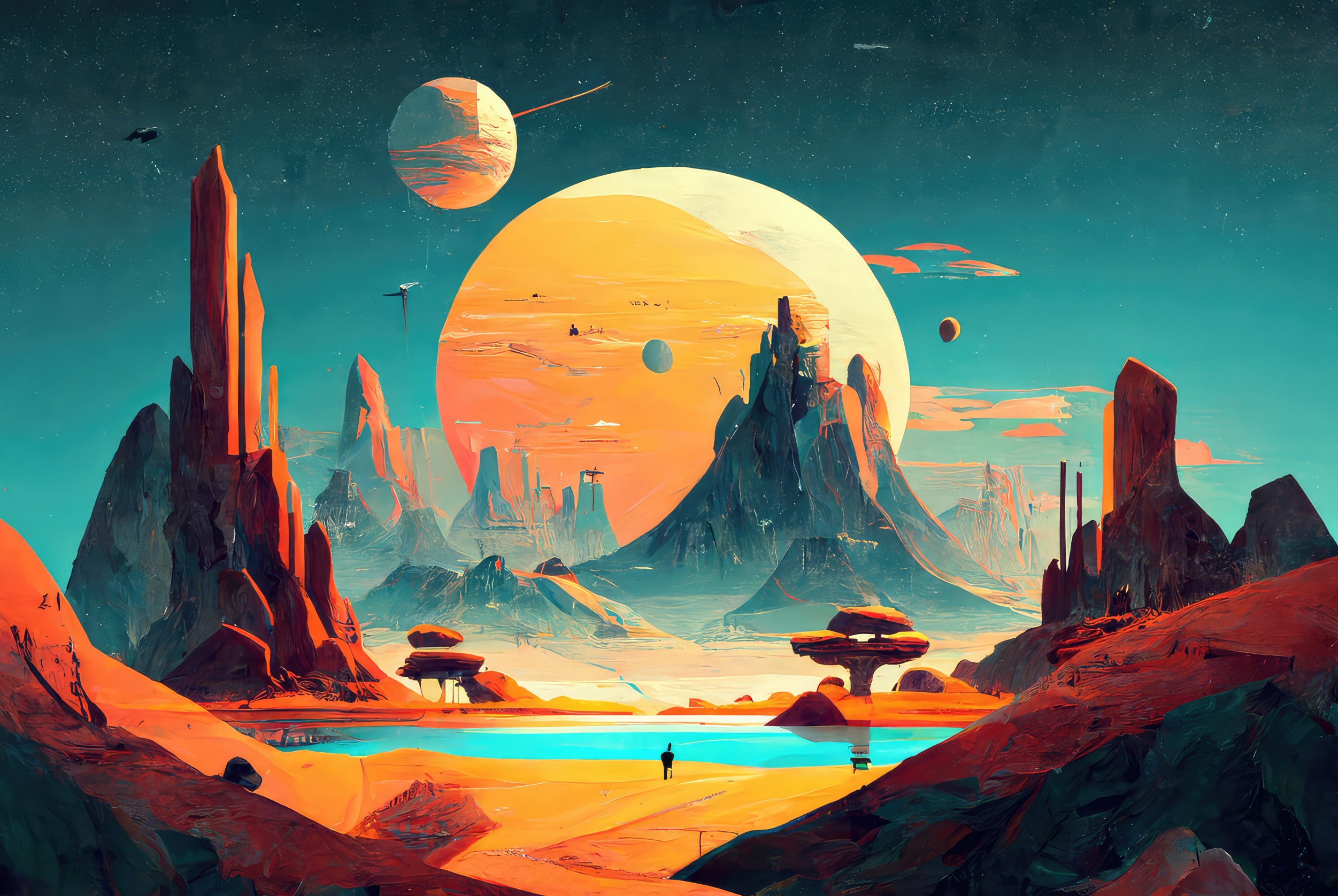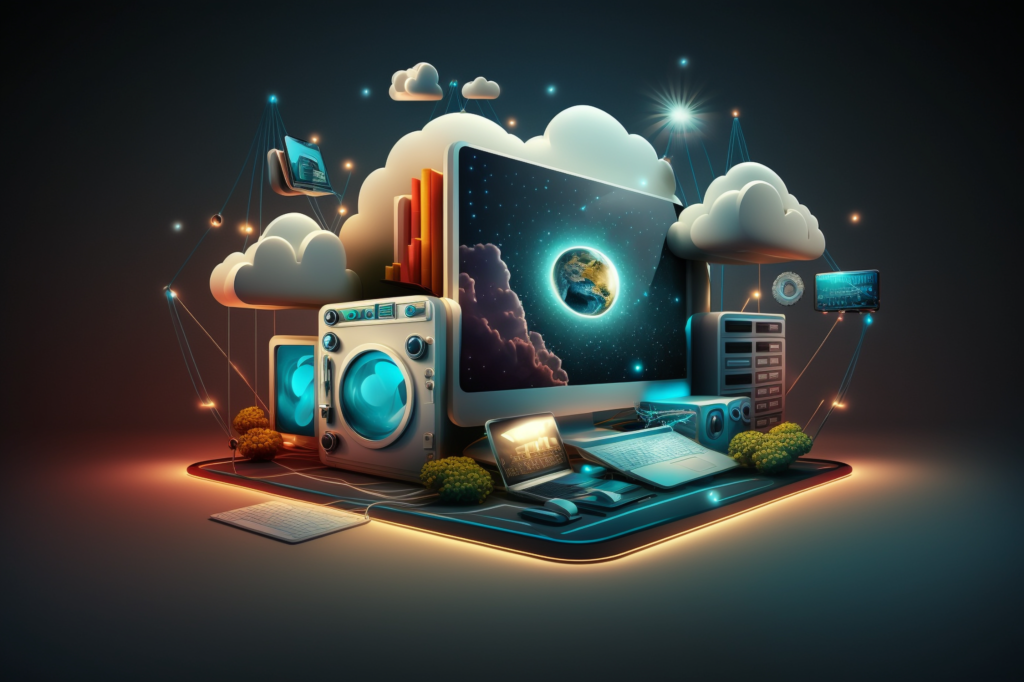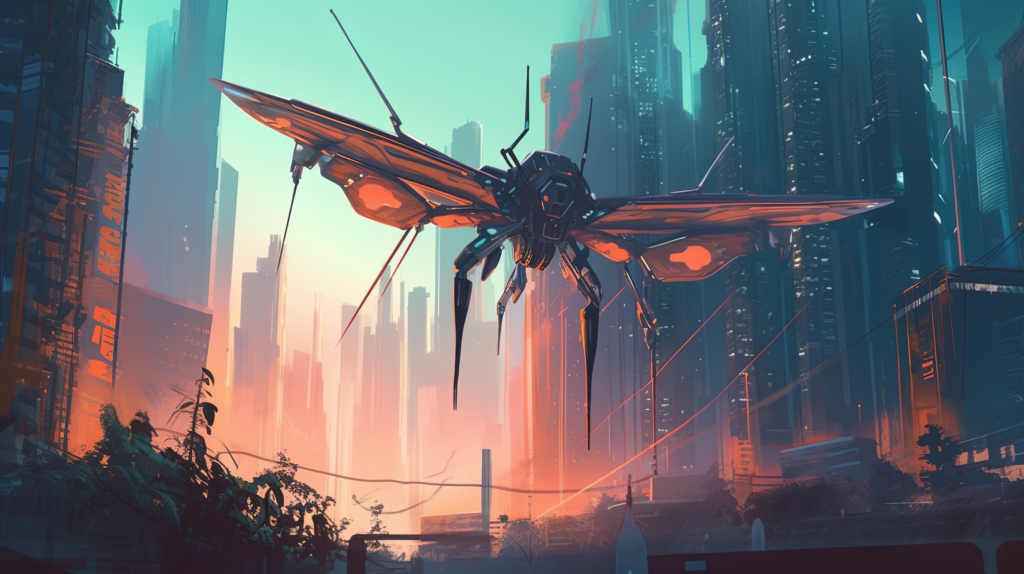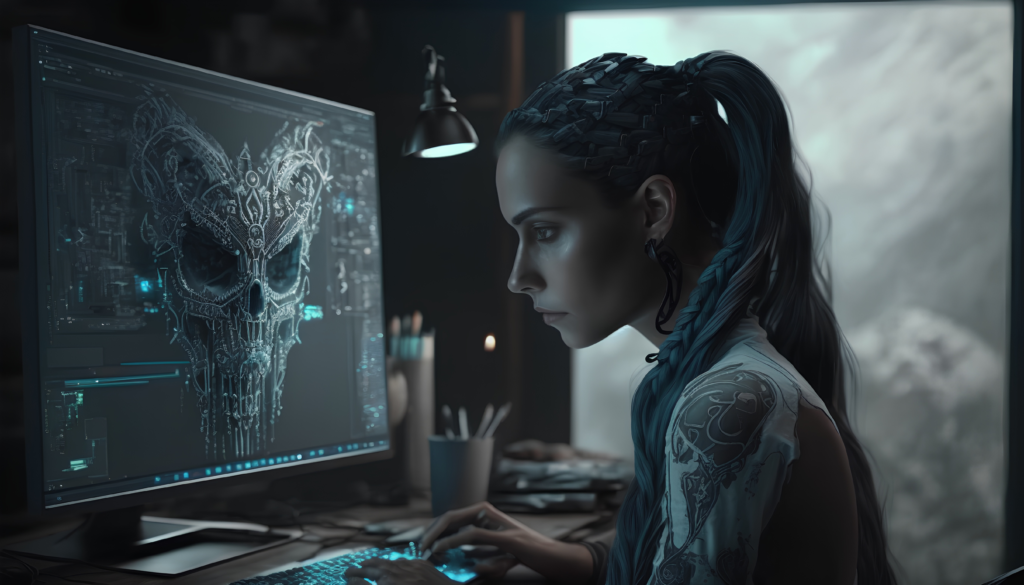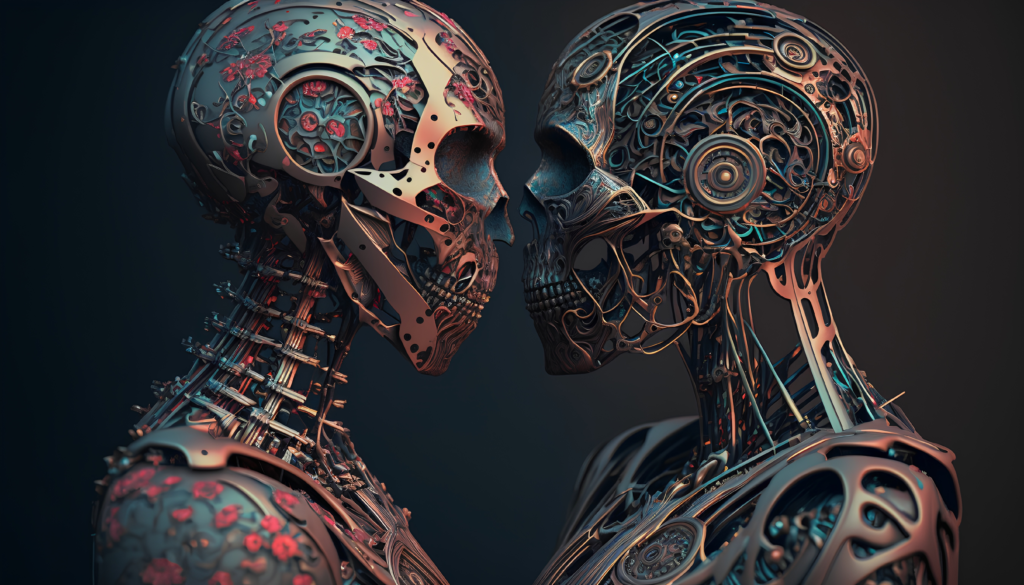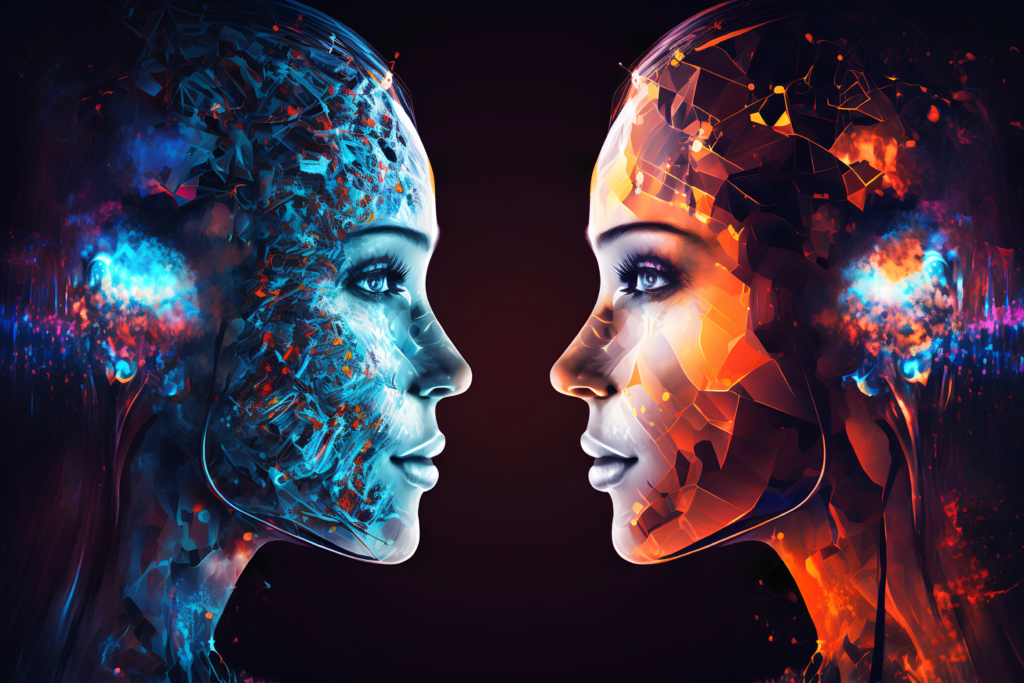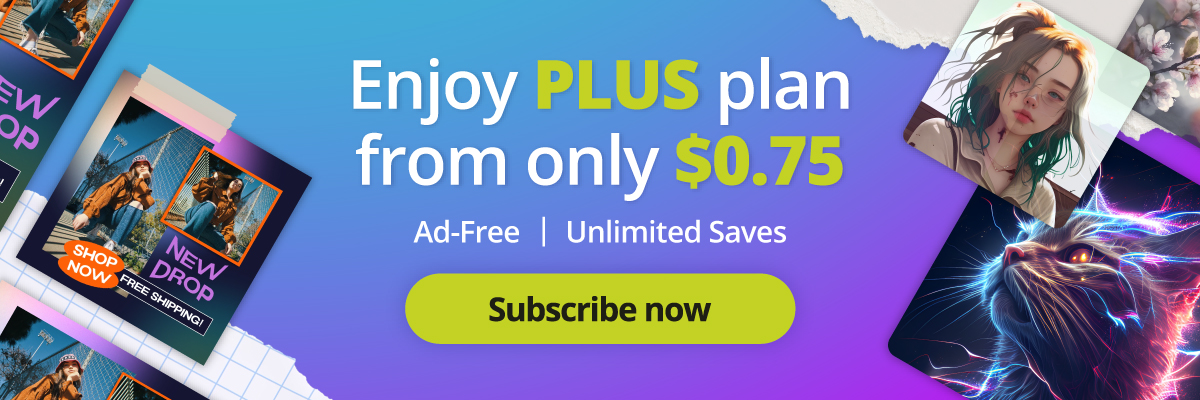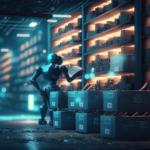AI, Pixlr, and Digital Dystopia: Are We Losing Touch with Reality?
Hey there, fellow internet-dwellers, buckle up because we’re about to dive head-first into the wild, sometimes wacky, but always fascinating world of artificial intelligence (AI) and digital image editing. Where do they intersect, you ask? In the bustling digital metropolis of Pixlr, of course.
Pixlr, if you’re not familiar with it, is a potent cocktail of AI and creativity, enabling us to tweak, refine, and reinvent our digital images with a few clicks or swipes. It’s the master puppeteer behind countless Instagram feeds and Facebook profile pictures. But in this 21st-century fairy tale, is Pixlr the fairy godmother or the evil stepmother? Join me on this ride through the mirror of digitally-altered reality as we attempt to answer that.
Before we delve deeper, let’s do a quick ice-breaker. Please raise your hand if you’ve ever edited a photo of yourself before sharing it online. Okay, we can’t actually see you, but we’re willing to bet that a lot of imaginary hands just shot up.
We’re not here to judge. After all, who among us can resist the lure of sparkling eyes, radiant skin, and the perfect sunset halo around our #OOTD? (That’s ‘Outfit Of The Day’ for those not hip to the Instagram lingo.) Pixlr’s powerful AI allows us to mold our online personas to perfection, making every day a great hair day, every sunset worth a sonnet, and every party an epic event.
But, as we step into this glossy, AI-curated world, are we leaving reality behind? According to a recent study by the Pew Research Center on AI and the Future of Humans, there are growing concerns about the implications of AI on society and individuals’ perception of reality.
Artificial Intelligence has made photo editing absurdly easy, and Pixlr sits at the forefront of this revolution. With a slew of automatic enhancement options and intelligent filters, it transforms any ordinary Joe’s smartphone snapshots into artworks worthy of a gallery exhibition. But in this beautified world, do we risk losing touch with the imperfect charm of our authentic selves and surroundings?
Remember the time when photographs served as candid snippets of our lives – a family vacation, your dog’s first bath, a surprise birthday party. They were raw, unedited, and spontaneous. Now, they’ve evolved into carefully crafted narratives. Every image is staged to perfection, curated for maximum likes, shares, and retweets. Somewhere in this evolution, the line between reality and digital deception has blurred.
Take the popular #wokeuplikethis selfie trend, where people share photos of their supposedly just-awoken selves. But wait! Isn’t it magical how everyone wakes up with perfectly tousled hair, radiant skin, and zero pillow creases? Thank you, AI-powered Pixlr! As reported in an insightful article in The Guardian on the impact of AI on photo editing, digital tools like Pixlr are playing a significant role in shaping our understanding of beauty and reality. It’s amusing but also a little unsettling.
If you’re laughing, it’s okay. It’s absurd, but it’s also the new normal.
And how about those breathtaking landscapes that flood our feeds? Vibrant sunsets, ethereal forest trails, and mountain peaks right out of a fantasy movie. Real or Pixlr magic? Probably a bit of both. A Forbes article discussing the ethics of AI in photography highlights how AI tools, including Pixlr, are changing the landscape of digital imaging and the concerns it raises. While it’s wonderful to bring our creative vision to life, are we also feeding a culture where reality never seems enough?
There’s no denying the appeal of a ‘perfect’ online persona. It’s the gateway to admiration, envy, and validation in our social media-centric world. But when these personas are routinely AI-polished, are we setting unattainable standards of beauty, success, and happiness? Are we all unwitting participants in an escalating digital arms race where the weapons of choice are AI tools like Pixlr?
You might think, “Calm down, it’s just a photo editor.” But isn’t it more? It’s an instrument shaping our perceptions and expectations of the world and ourselves. It’s an accomplice in creating our digital utopia, where blemishes don’t exist, and life is a montage of perfect moments. But in chasing this utopia, are we discounting the beauty in our flawed reality?
Pixlr, like any tool, isn’t inherently good or evil; it’s how we use it. It empowers us to create, to express, and to share. But like every superpower, it comes with responsibility—the responsibility to stay authentic in a world of digital illusions.
Let’s not forget the charm of a candid laugh, the narrative in a scar, the beauty in a cloudy day. Let’s continue to capture real moments amid our meticulously crafted ones. Let’s use AI as a paintbrush, not a mask. Let’s remember that while Pixlr can add a dash of magic, the best stories often lie in the unedited, unfiltered, and beautifully imperfect reality.
An article in The Verge discusses the evolving role of AI in photo-editing apps like Pixlr and its influence on our social media culture. In this AI-enhanced Pixlr journey, let’s make sure we don’t lose touch with the authentic beauty of the world around us. Because at the end of the day, it’s our quirks, our flaws, and our unique perspectives that make us human.
As we stand in front of the mirror that is Pixlr, let’s use its powers to enhance, not erase, the true essence of what it captures. And, in doing so, maybe we can make our reflection not just beautiful but real.
Remember, the world isn’t always picture-perfect, and that’s okay. Because when it comes down to it, we’re all a little bit #wokeuplikethis, flaws and all. And you know what? That’s pretty awesome.
So, next time you find yourself navigating the Pixlr playground, enjoy the ride. But also pause, think, and maybe, just maybe, dial back the AI magic a tad and let your true self-shine. Because you, my friend, are every bit as remarkable as your AI-enhanced avatar. Even more so, in fact.
MIT Technology Review has an interesting piece on the psychological effects of AI-enhanced selfies and the role of apps like Pixlr in this digital transformation. An insightful piece on the Psychology Today website explores the impact of AI-powered tools like Pixlr on our self-image and social interactions.
Now, isn’t that a refreshing snapshot of reality?
